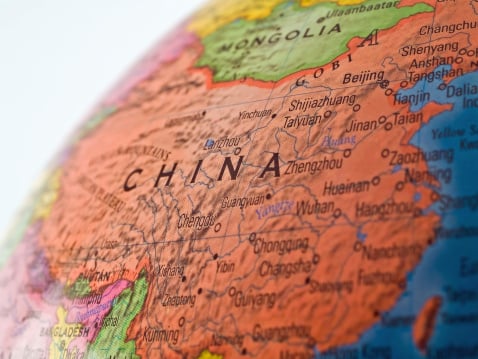China: World Growth Engine, or Still the Short of a Lifetime?
December 12, 2012 by Jon C. Ogg
He does not trust any of the accounting in China and likens much of the country to a “roach motel.” He argues that the trade export balance is decreasing and capital is fleeing the country. Here are the three reasons most cited by hedge fund managers for their China shorts.
- China’s expansion cycle already has greatly surpassed all prior global capital investment cycles.
- Recent economic growth is not sustainable and is predominantly the result of massive fiscal stimulus, concomitant with a surge in the growth of credit, none of which is sustainable.
- China has substantial overcapacity in virtually every industrial manufacturing and infrastructure sector, causing declining marginal returns on investment.
Heavy hitters are plentiful, when looking at who else is involved in the China short. Mark Hart from Corriente Advisors and David Einhorn of Greenlight Capital are just two of the big-name hedge fund managers in tune with Chanos. So is this indeed the short of the century, or is it what Leon Cooperman has described the Japan short as — a “widowmaker”?
China’s November factory output and retail sales jumped to eight-month highs in November. Inflation bounced off 33-month lows, indicating the economy is coming back. “The Chinese economy is now in a sweet spot and can stay in the sweet spot through the first half of 2013,” said Ting Lu, an economist at Bank of America-Merrill Lynch. “Beijing will be happy to sustain the current policy stance.”
The Chinese economy had been slowing for almost two years, as export growth was curtailed due to stagnant foreign economies. That appears to be changing, and with an end to a political transition and Xi Jinping installed as the new leader, economic stability and renewed growth may be right around the corner. Mr. Xi is regarded by many as a welcome change at the top of the Communist Party. His father, a former vice premier, is reputed to have spoken out against the excessive use of force at Tiananmen square.
So it appears that once again the economic stars are aligning for a country with an unusual ability to sway domestic and world growth. “We expect such (economic) recovery to be durable and will at least extend into the first half of next year, though the pace of recovery will remain mild,” said Sun Junwei, an economist at HSBC in Beijing.
Exxon Mobil Corp. (NYSE: XOM) just released its annual “Outlook to 2040” this week, and the oil giant still expects that China will be among the fastest growing of the large economies between now and then.
As far as what to expect out of China’s funds, exchange traded funds and American depositary receipts, the results and expectations are very mixed. What is interesting is that there are not so many of the huge ADRs that are very active, and that has been due to China’s historic A-share and B-share restrictions and due to so many Chinese companies being thought of as close to government conservatorship entities.
Baidu Inc. (NASDAQ: BIDU), the “Google of China,” now trades at less than $95, and its 52-week range is $85.96 to $154.15. Amazingly, it still has a market cap of almost $33 billion, and the consensus analyst target from Thomson Reuters is still close to $140 on this one.
The iShares FTSE China 25 Index Fund (NYSEMKT: FXI) trades at $38.80 and is now closer to its 52-week high, with a range over the past year of $31.62 to $40.74. This is the most active ETF for China exposure, with some 16 million shares trading on average each day.
Morgan Stanley China A Share Fund (NYSE: CAF) is a closed-end fund that trades close to 200,000 on average per day, and at $21.25, the 52-week range is $17.68 to $22.87. The China Fund Inc. (NYSE: CHN) is thinly traded, even with more than $500 million in assets, but at $23.44, its 52-week trading range is $19.75 to $24.10.
So while there are always individual Chinese stocks that may be ripe for the short picking, the overall macro economic picture may have turned the corner, even if some of the ADRs have not fully recovered. When the key funds and ETFs are very close to 52-week highs, it is generally a signal that optimism and expectations have picked up substantially. If that is the case, then as usual when shorting any stocks, seller beware. The one negative that always comes with short selling is that you have unlimited downside. That can be painful!
Lee W. Jackson
Sponsored: Find a Qualified Financial Advisor
Finding a qualified financial advisor doesn’t have to be hard. SmartAsset’s free tool matches you with up to 3 fiduciary financial advisors in your area in 5 minutes. Each advisor has been vetted by SmartAsset and is held to a fiduciary standard to act in your best interests. If you’re ready to be matched with local advisors that can help you achieve your financial goals, get started now.